44 elements and compounds in food labels
Ingredients lists - Compound ingredients - University of Reading These are the compound ingredients listed: Chopped tomatoes - Tomato juice, acidity regulator: citric acid. Egg lasagne sheets - Durum wheat semolina, egg. Mascarpone - Milk cream, pasteurised cow's milk, acidity regulator: citric acid. Crème fraiche - Cream, skimmed milk, preservative: potassium sorbate, culture. How To Read Food and Beverage Labels - National Institute on Aging If a food has 5% DV or less of a nutrient per serving, it is considered low in that nutrient. If it has 20% DV or more of a nutrient per serving, it is considered high in that nutrient. Low or high can be either good or bad — it depends on whether you need more of a nutrient (like dietary fiber) or less (like saturated fat).
Qtr 1 module 4 elements & compounds - SlideShare infer the food ingredient that could be the source of those listed elements; and 4. recognize that most of these food ingredients are examples of compounds. Materials Needed food labels Procedure 1. Refer to the labels of different food products below.

Elements and compounds in food labels
FDA Food Product Labeling & Packaging Requirements - ESHA Food Product Labeling and Packaging 101. The FDA regulates most packaged foods sold in the United States and has specific requirements for what elements a package must contain (e.g. a Nutrition Facts panel, ingredient statement, etc.). In order to sell your food products, you must comply with the FDA's packaging laws unless your operation is ... 30 Chemicals in Food (Good and Dangerous Ingredients) 3. Carboxymethylcellulose. Carboxymethylcellulose is the chemical additive that is used in foods to stabilize and improve the texture of certain types of foods such as beer, jellies, or even ice cream. This chemical is safe for your body and it is okay for you to consume foods that contain this type of chemical. Join LiveJournal Password requirements: 6 to 30 characters long; ASCII characters only (characters found on a standard US keyboard); must contain at least 4 different symbols;
Elements and compounds in food labels. Food Labels | Nutrition.gov Folate and Folic Acid on the Nutrition and Supplement Facts Labels HHS, Food and Drug Administration, Center for Food Safety and Applied Nutrition Learn what common foods are natural sources of the vitamin folate, plus what foods may have folic acid added during processing. Interactive Nutrition Facts Label HHS, Food and Drug Administration Satellite News and latest stories | The Jerusalem Post Mar 08, 2022 · The Jerusalem Post Customer Service Center can be contacted with any questions or requests: Telephone: *2421 * Extension 4 Jerusalem Post or 03-7619056 Fax: 03-5613699 E-mail: [email protected ... Elements of a Food Label - Jet-Label Product Category Mention the type of product it is - whether it's cookies, sauce, spices, chocolate, dairy products or any other food type. Also include details such as vegetarian or non-vegetarian, organic or free range, etc. Any certifications from authorized organizations should also be mentioned on the label. Using Chemical Formulas to Describe Food - FoodCrumbles In food, only a small group of elements make up the vast majority of 'building blocks' in food's molecules: hydrogen (H) carbon (C) oxygen (O) nitrogen (N) The letters given behind each element are the abbreviations used to signify that element. Every element has such an abbreviation. Most abbreviations are only one or two letters long.
How to Understand and Use the Nutrition Facts Label | FDA - U.S. Food ... Overview. The information in the main or top section (see #1-4) of the sample nutrition label (below) can vary with each food and beverage product; it contains product-specific information ... Dangerous PFAS Chemicals Are in Your Food Packaging Mar 24, 2022 · These results show levels of total organic fluorine, a measure of PFAS, in 118 food packaging products gathered from major fast-food and fast-casual restaurants, as well as supermarkets. Herbal medicine - Wikipedia Herbal medicine (also herbalism) is the study of pharmacognosy and the use of medicinal plants, which are a basis of traditional medicine. There is limited scientific evidence for the safety and efficacy of plants used in 21st century herbalism, which generally does not provide standards for purity or dosage. PDF Food Chemistry Periodic Table - Royal Society of Chemistry Omoaruhke, for contributions to the elements, to Flaticons for use of their free icons, and to Alinea and TDMA for photographs of He and Ti. In slideshow mode, click on an element in periodic table to find out more, return via the RSC Food Group Logo. Celebrating the International Year of the Periodic Table 2019. Created by Jane K Parker. Contact:
Elements Found in Food - The effect of the ... - Weebly There are 6 elements found in almost all foods. These elements are carbon, hydrogen, nitrogen, phosphorus, and sulfur. There are also 5 elements found as salts (dissolved). They are sodium, magnesium, chlorine, potassium, and calcium. There are 3 trace elements, which means they are found in very small amounts in organisms. [Solved] Activity 2. Let's Hunt Elements and Compounds!directions ... Compounds Sugar - made up of oxygen, carbon, hydrogen Butter - made up of calcium, sodium, potassium Salt - made up of sodium, chlorine (some types may even have iodine) Soy - sodium, potassium, phosphorus, calcium Sodium Bicarbonate or Baking Soda - hydrogen, carbon, oxygen Wheat - iron, manganese, calcium, phosphorus, selenium, sodium, potassium Food labels - Better Health Channel Some ingredients used in foods are called 'compound ingredients'. These are ingredients made by a mixture of other ingredients. For example, chocolate (cocoa, cocoa butter, sugar) or pasta (flour, egg, water). On food labels, the ingredient list must contain all ingredients including those that make up compound ingredients. Federal Register :: National Bioengineered Food Disclosure ... Dec 21, 2018 · Section 66.3(a) requires that labels for bioengineered food must bear a BE disclosure consistent with the requirements of part 66. Section 66.3(a)(2) prohibits labels for food that is not bioengineered from bearing a BE disclosure unless the food may bear a voluntary disclosure under § 66.116, based on records maintained under § 66.302.
Chemical Ingredients 101: How to Read a Product Label Calcium carbonate, dehydrated silica gels, hydrated aluminum oxides, magnesium carbonate, phosphate salts and silicates aid in the removal of tooth debris and residual surface stains. 1 Sorbitol, a type of sugar derived from fruits, corn and seaweed, helps improve the taste of toothpaste. 2 An example of a toothpaste label
Key Elements of a Food Label To Know | Food Labeling Info Below is a diagram of the key elements that should be on your food label: Ways to Enhance Your Labels When creating food labels, you should first research and examine the product's nutritional contents. Be aware that your claims can become empty statements to consumers if they think that the label's information is misleading.
14 Common Chemicals Used at Home - Compounds - Functions Here are more list of common chemicals used at home: 1. Monosodium glutamate. Monosodium glutamate is famous to be known as MSG in household. It is usually has a savory taste and be used as food preservative in stew and soup. Monosodium glutamate or sodium glutamate is composed by sodium salt and glutamate acid.
Packaging and labeling - Wikipedia In 2019 the global food packaging market size was estimated at USD 303.26 billion, exhibiting a CAGR of 5.2% over the forecast period. Growing demand for packaged food by consumers owing to quickening pace of life and changing eating habits is expected to have a major impact on the market. The purposes of packaging and package labels
Ingredient lists and percentage labelling - Food Standards Percentage labelling. Most packaged foods have to carry labels which show the percentage of the key or characterising ingredients or components in the food. This allows you to compare similar products. The characterising ingredient for strawberry yoghurt would be strawberries and the label would say, for example, 9% strawberries.
Elements and Compounds in food label & other products ( Module3-Q1 ... elements and compounds in food label and other productplease don't forget to subscribe if you haven't and click the bell button if you want to be notified on...
Food Product Labeling Basics | Oklahoma State University Required Elements of a Food Label The Federal Food, Drug and Cosmetic Act (FD&C) requires five elements to appear on a food label: Name of the food Net quantity of contents Name and address of the manufacturer Statement of ingredients Nutrition information
Food Additives and Compounds | Nutrition.gov Consumer Info About Additives & Ingredients. HHS, Food and Drug Administration, Center for Food Safety and Applied Nutrition. Find information from the Food and Drug Administration ( FDA) on benzene, color additives, fat substitutes, food irradiation, preservatives, sweeteners, sulfites, and more.
Q6. How did you classify the substances from the food label ... - Brainly It's elements if the minerals found in the food label are (Iron,Calcium, Magnesium, Selenium) it is compound if two or more elements are mixed together such as Sodium (Na) and Chlorine (Cl) if they are combined together it will become sodium chloride which is also known of its name (SALT) Advertisement somyajha29 Answer:
Food Labels (for Teens) - Nemours KidsHealth Some important vitamins and minerals are included on the Nutrition Facts label: Vitamin D is needed to absorb calcium to build bones and keep them strong. It also plays a part in heart health and fighting infection. Calcium is needed for strong bones. It keeps nerves and muscles working and the heart healthy.
Elements, Compounds & Mixtures in Food Science by Donna Blalock - Prezi Food Science element symbols- H, C, N, O , S, P, Na, Al. Formulas - represents compounds. Caffeine - C8 H10N4O2. Sodium bicarbonate - NaHCO3. Sodium Chloride- ? Elements - simplest form of matter that can exist under normal lab conditions. (110+ elements) Elements most used in food science -. carbon, hydrogen, oxygen, sulfur, and nitrogen.
Definition of Compounds & Elements - Examples, Types ... - BYJUS Compounds can be defined as substances consisting of 2 or more different types of elements in a fixed ratio of their atoms. When the elements combine, some individual property of the elements is lost and the newly formed compound has new properties. Chemical Formula: Compounds are represented by their chemical formula.
Elements and Compounds | Introduction to Chemistry | | Course Hero An element is a material that consists of a single type of atom. Each atom type contains the same number of protons. Chemical bonds link elements together to form more complex molecules called compounds. A compound consists of two or more types of elements held together by covalent or ionic bonds.
Food Labeling & Nutrition | FDA Food labeling is required for most prepared foods, such as breads, cereals, canned and frozen foods, snacks, desserts, drinks, etc. Nutrition labeling for raw produce (fruits and vegetables) and...
Label - Wikipedia The use of radioactive isotopes of chemical elements, such as carbon-14, to allow the in vivo tracking of chemical compounds. Laser or printer labels are generally die cut on 8.5" x 11" (US letter) or A4 sized sheets, and come in many different shapes, sizes, formats and materials. Laser label material is a nonporous stock made to withstand the ...
Food labels & nutritional information | Raising Children Network All foods have to list seven food components on their nutritional information panels - energy (kilojoules), protein, total fat, saturated fat, total carbohydrates, sugars and sodium. Manufacturers might decide to include other nutrients too, including fibre and calcium.
Name elements and compound that are present from the food labels of the ... ★★ Tamang sagot sa tanong: Name elements and compound that are present from the food labels of the product - studystoph.com
ELEMENTS AND COMPOUNDS IN FOOD LABELS AND THEIR USES - YouTube Please like, share and subscribe! Thank you!
Join LiveJournal Password requirements: 6 to 30 characters long; ASCII characters only (characters found on a standard US keyboard); must contain at least 4 different symbols;
30 Chemicals in Food (Good and Dangerous Ingredients) 3. Carboxymethylcellulose. Carboxymethylcellulose is the chemical additive that is used in foods to stabilize and improve the texture of certain types of foods such as beer, jellies, or even ice cream. This chemical is safe for your body and it is okay for you to consume foods that contain this type of chemical.
FDA Food Product Labeling & Packaging Requirements - ESHA Food Product Labeling and Packaging 101. The FDA regulates most packaged foods sold in the United States and has specific requirements for what elements a package must contain (e.g. a Nutrition Facts panel, ingredient statement, etc.). In order to sell your food products, you must comply with the FDA's packaging laws unless your operation is ...
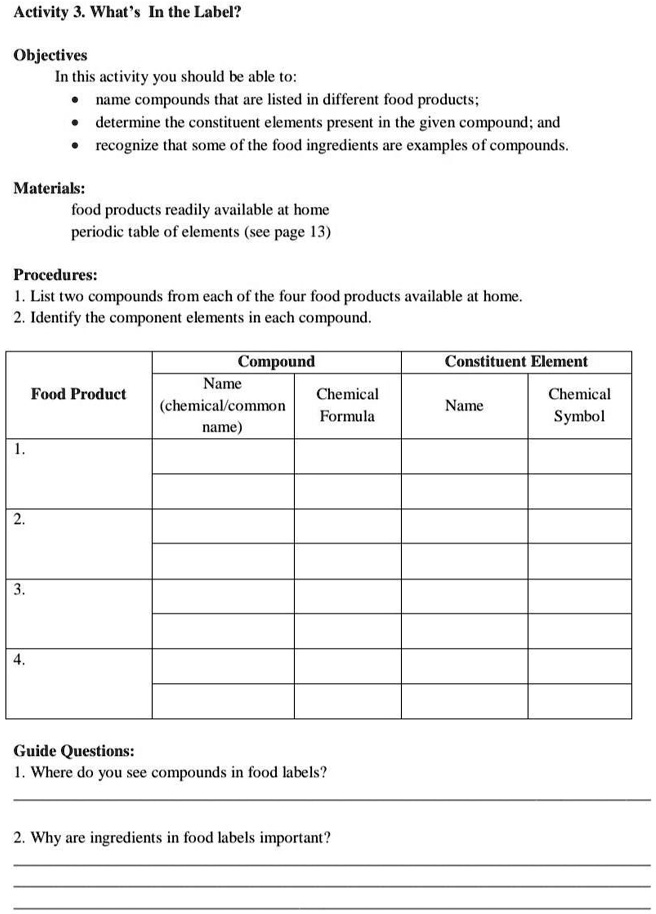
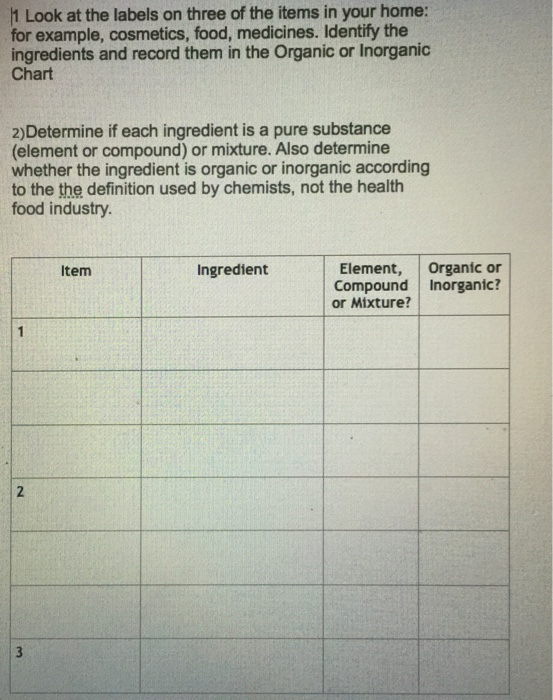
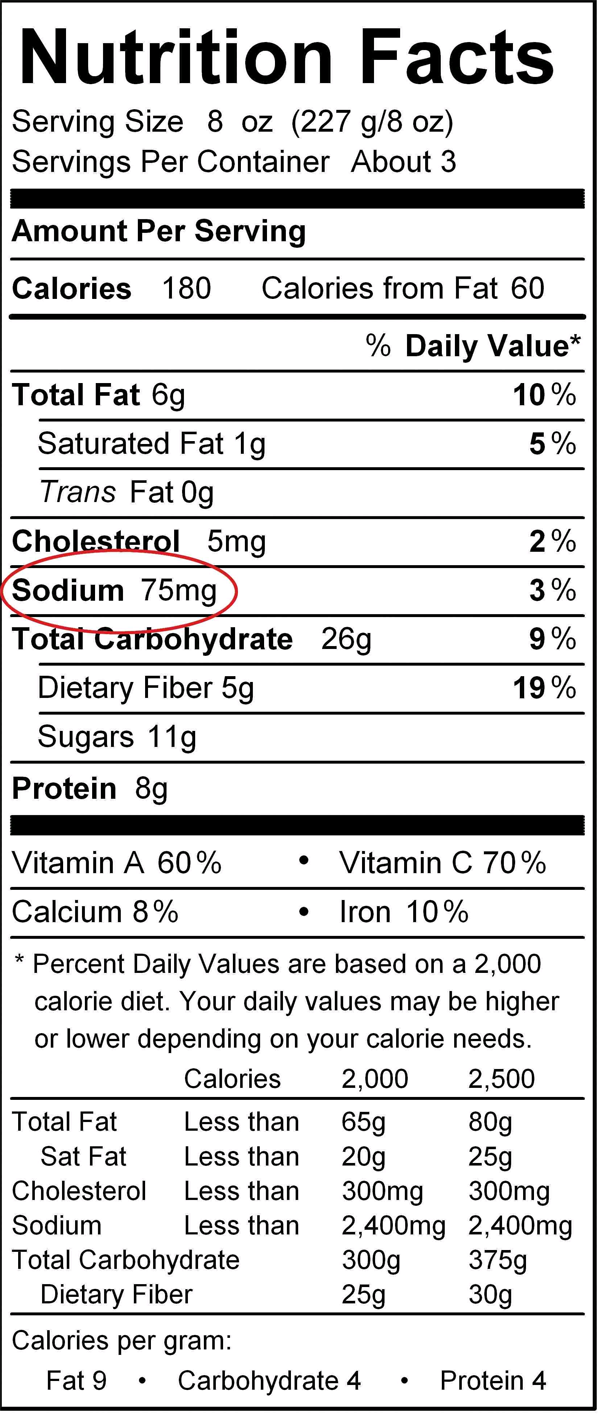

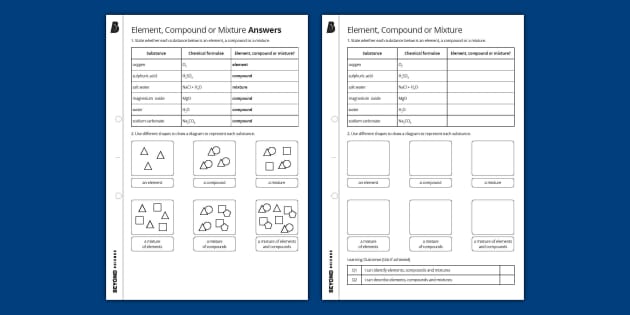
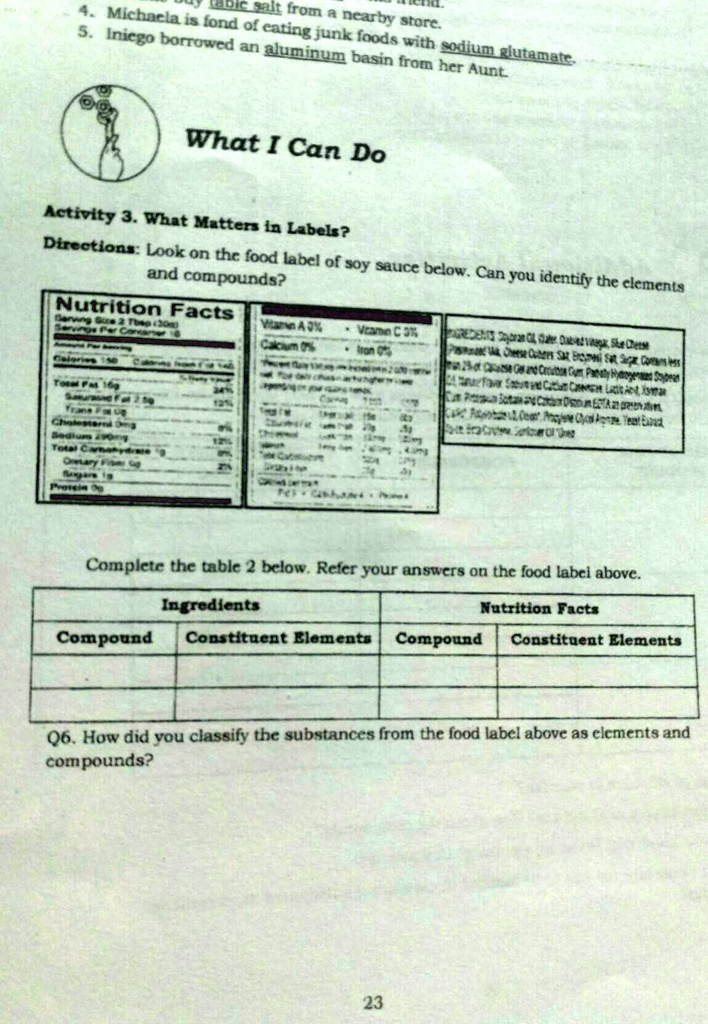





![Best Answer] List down in Table 1 the compounds in the ...](https://ph-static.z-dn.net/files/da0/ef4a99e2f1b9e01d99a3c2e925b2b8c5.jpg)
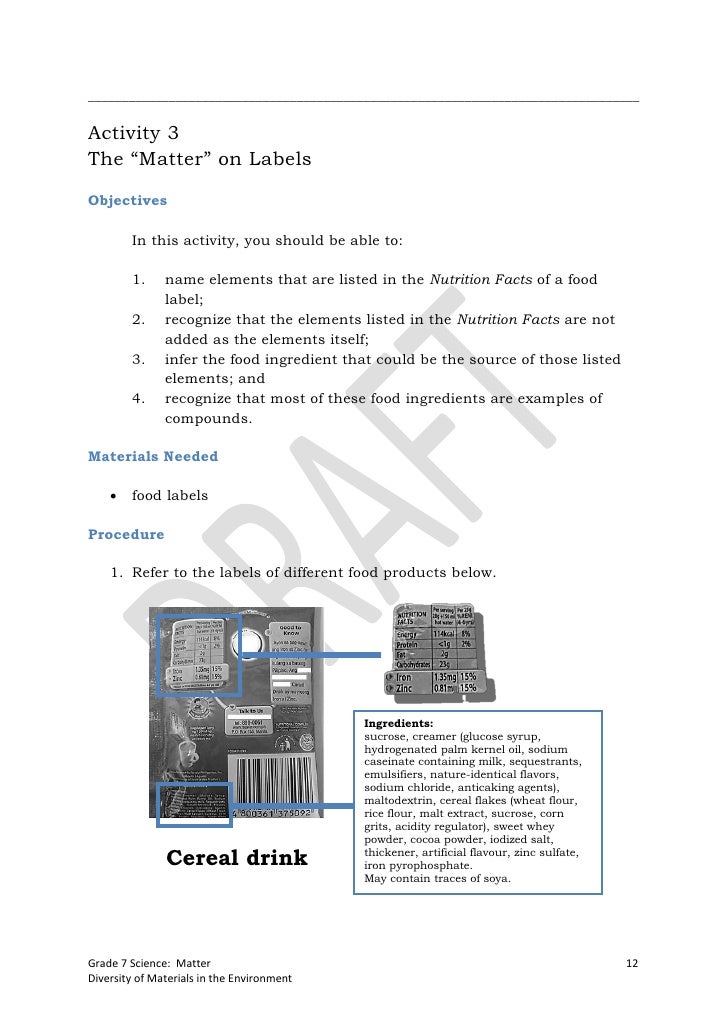



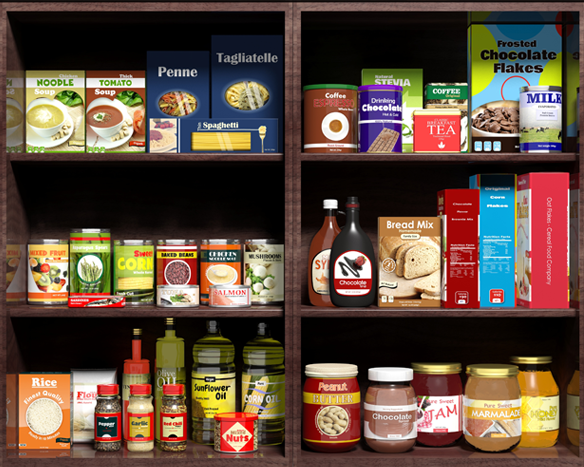


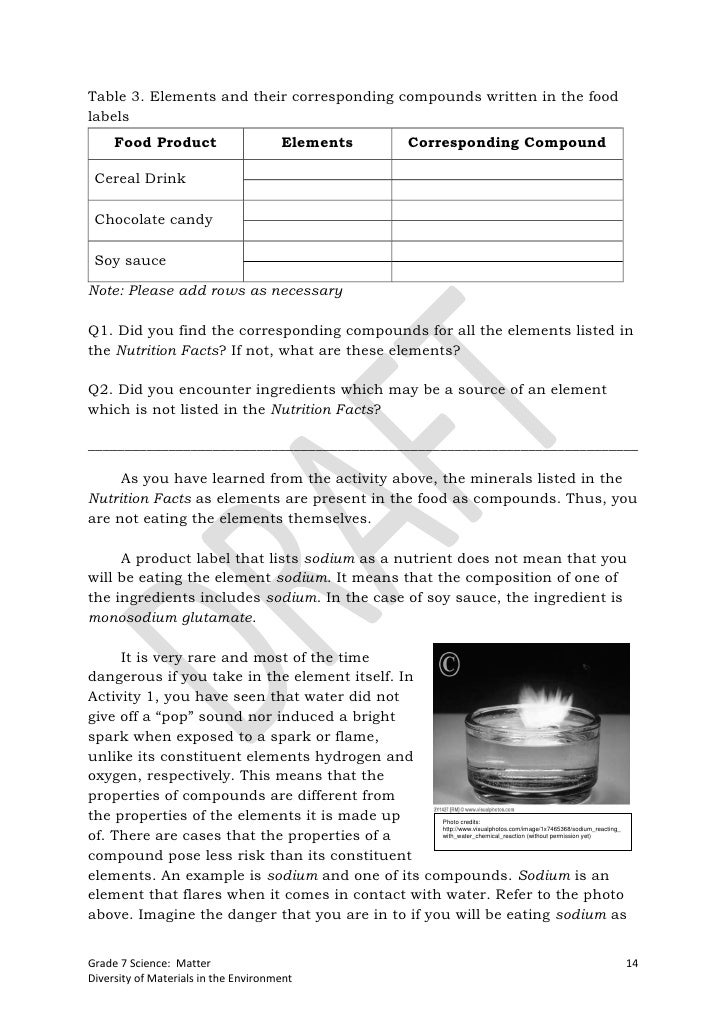
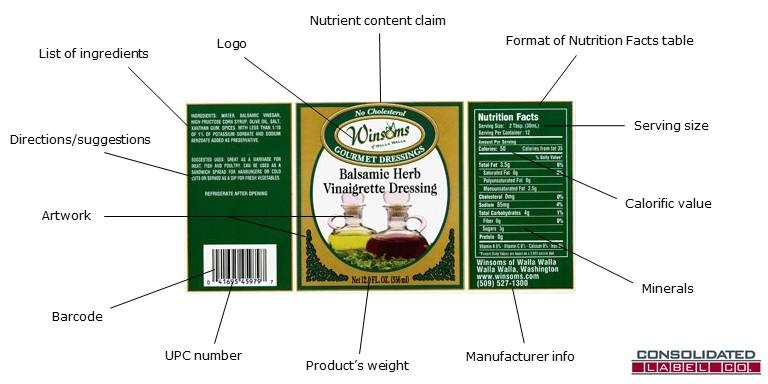
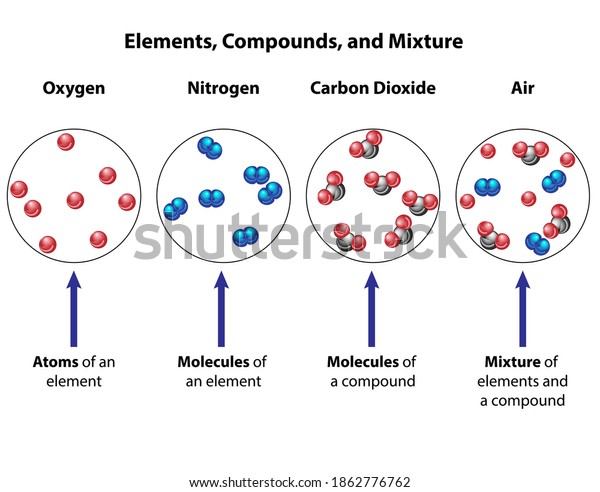
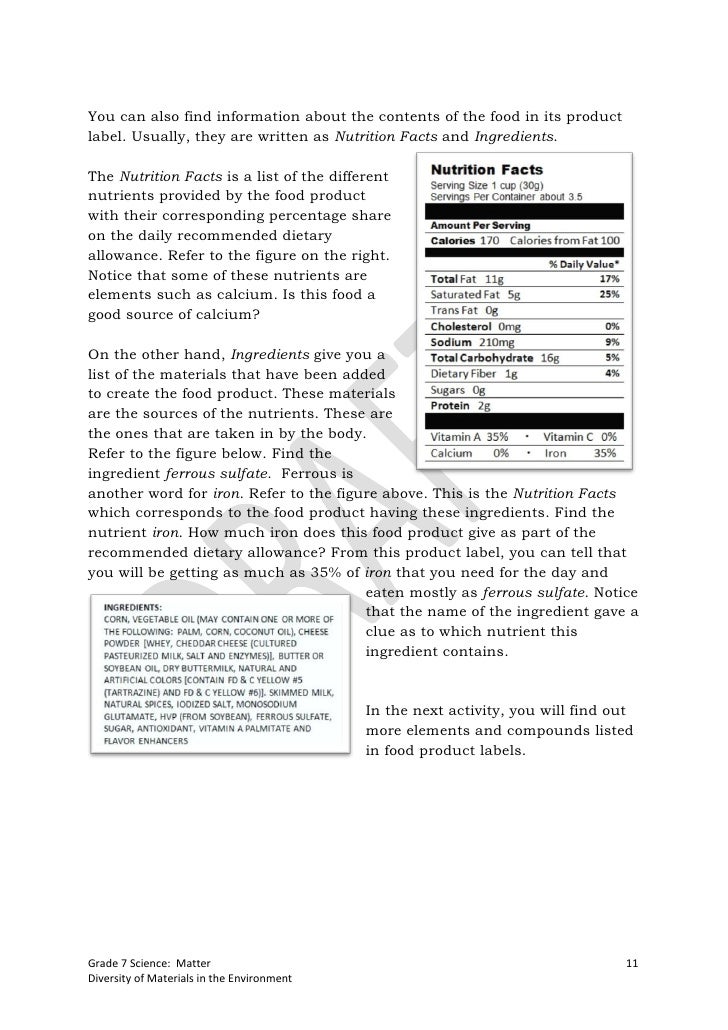

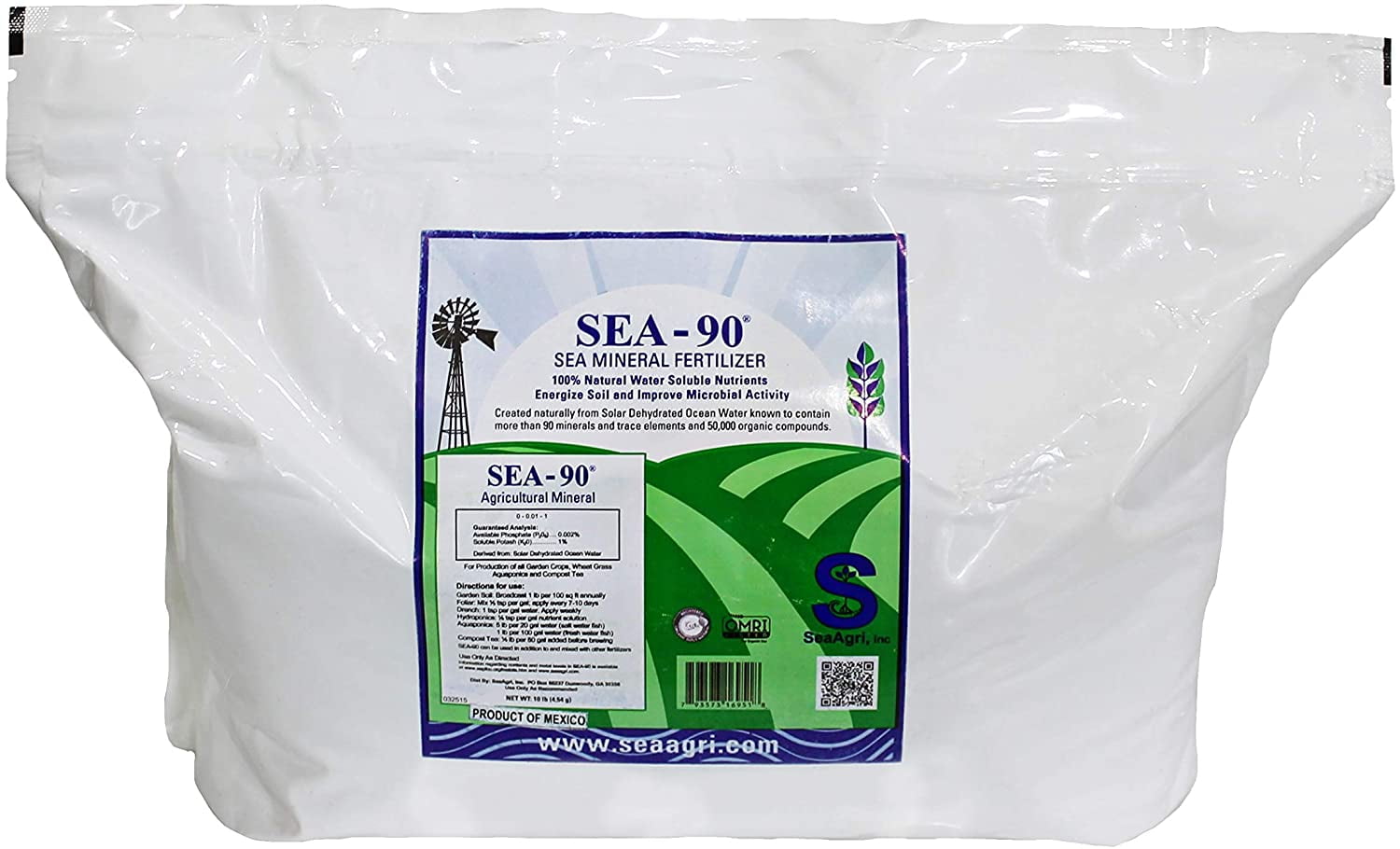





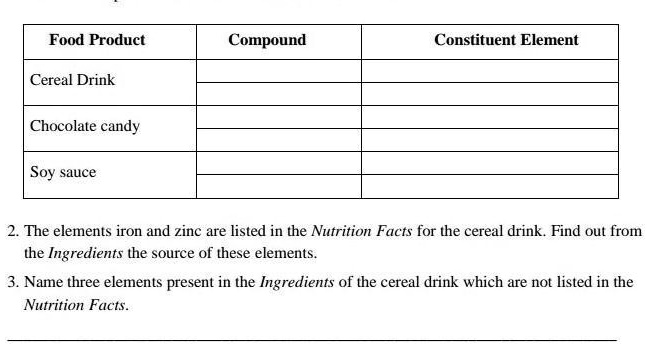


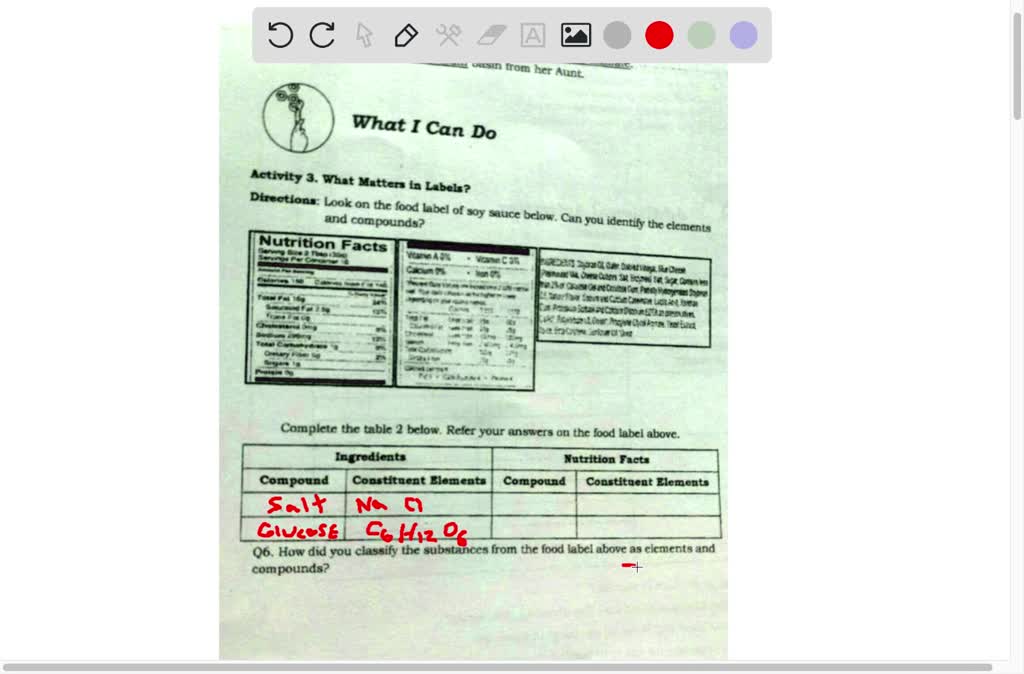


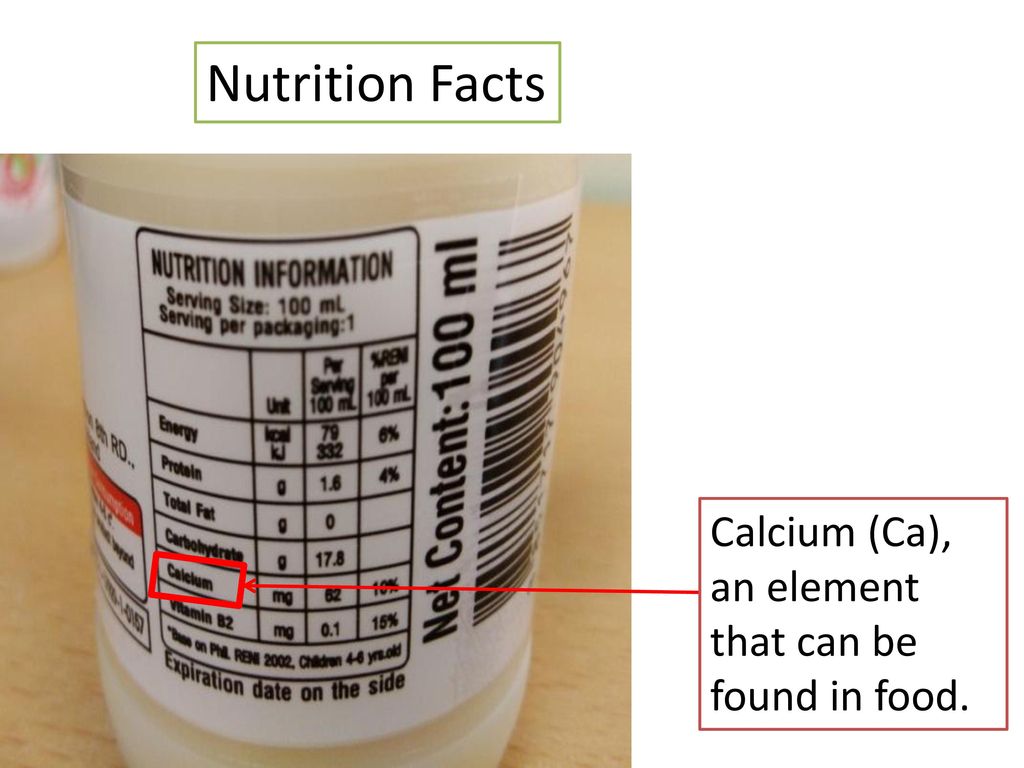
Post a Comment for "44 elements and compounds in food labels"